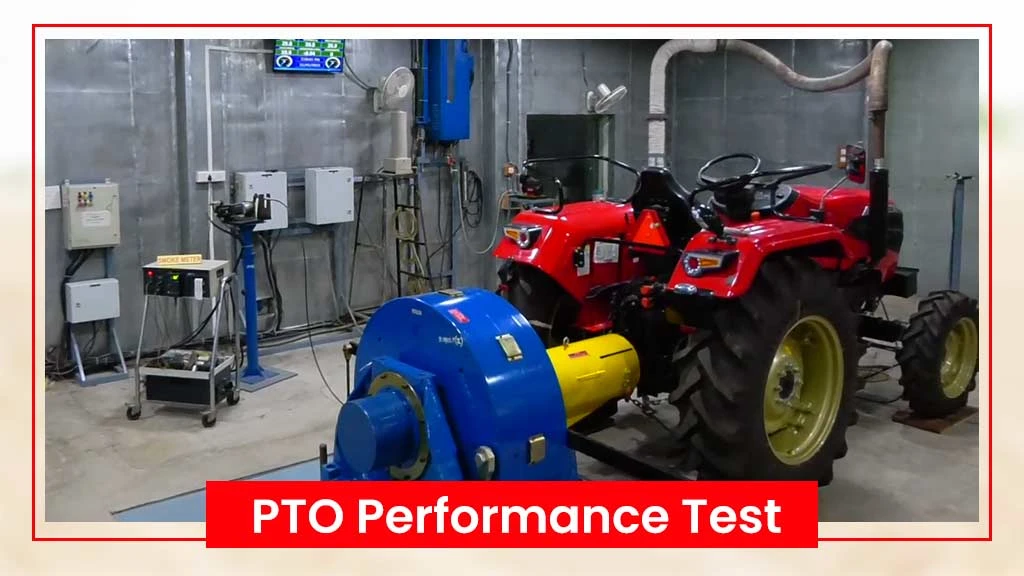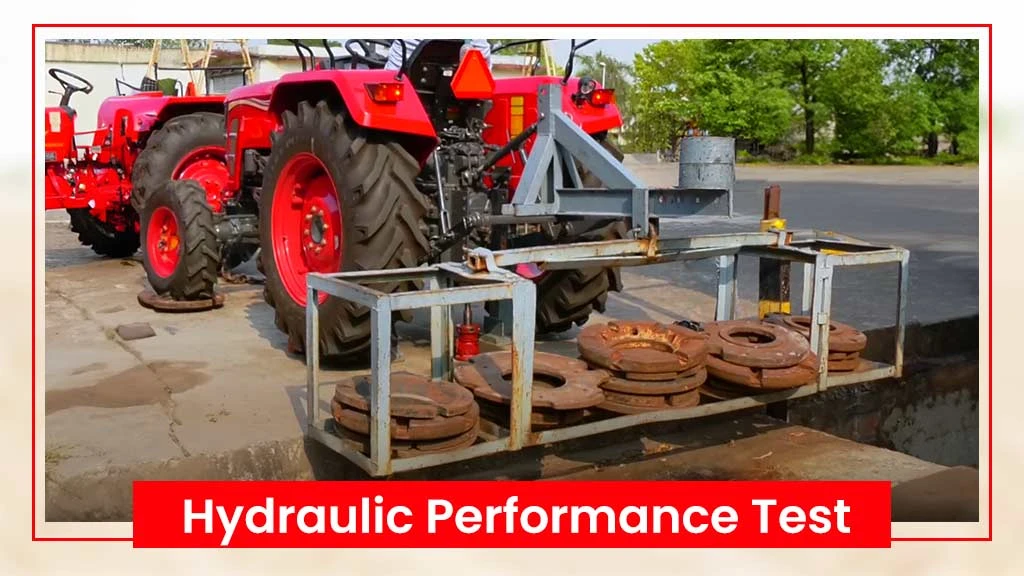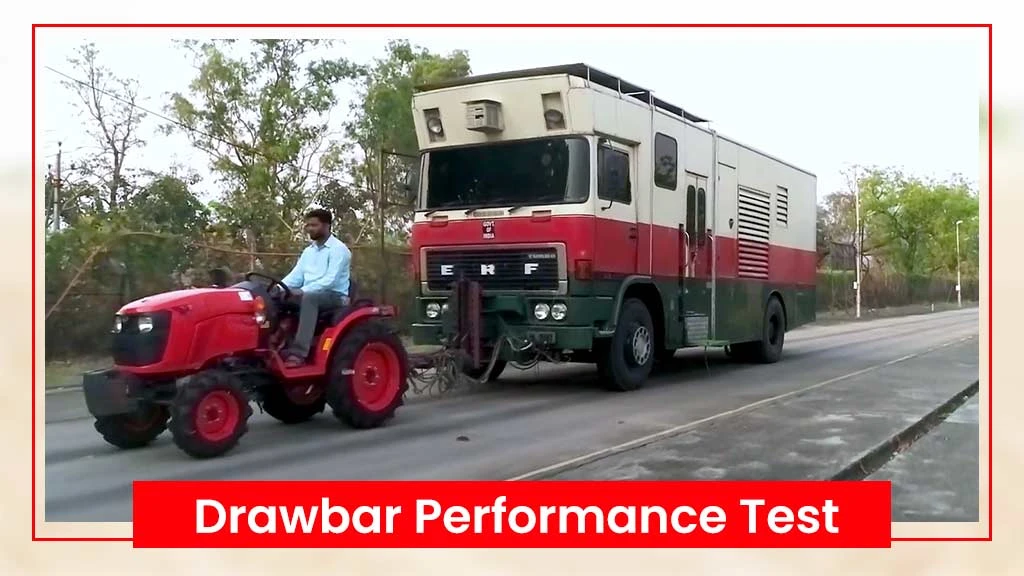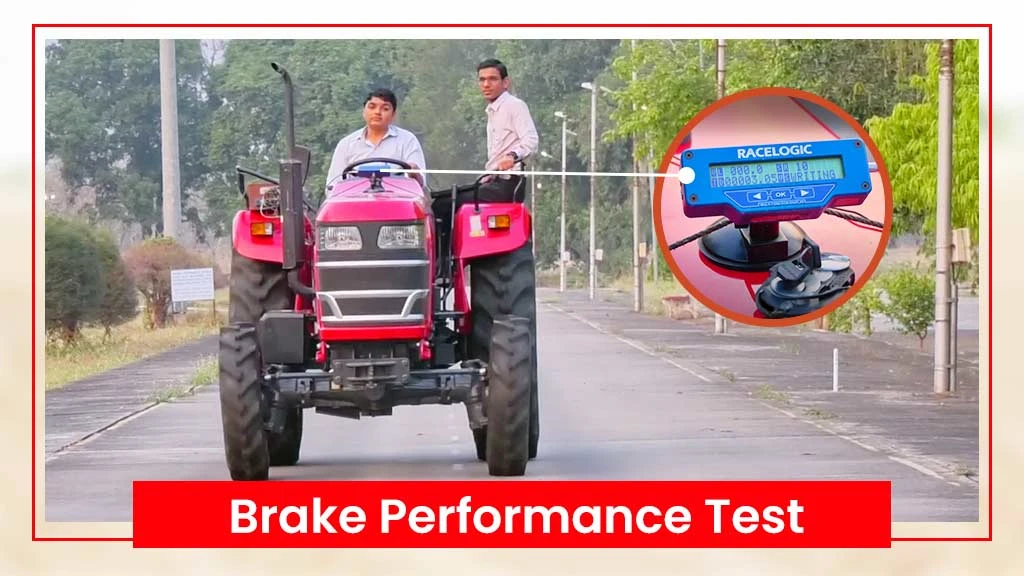Tractor Testing in India: Ensuring Performance and Safety

Table of Contents
Introduction
Tractor testing uses different processes to evaluate the performance and overall quality of a farm tractor. It offers accurate and reliable performance data related to the engine, transmission, PTO, ergonomics and more.
Testing is beneficial for all stakeholders, including manufacturers and consumers. Two main categories of tests are carried out at the authorized facility: commercial and confidential. Commercial tests determine the performance characteristics of tractors that are ready for commercial production. Confidential tests offer confidential information related to the performance of tractors to the manufacturer. This means that these test reports are not available in the public domain. Manufacturers can use the test report to make recommended changes to their tractors and improve their quality. Also, testing helps them to conform to Indian standards.
A tested tractor clears doubts about the tractor’s quality and safety of the operator in the minds of consumers. Also, farmers can check if the tractor really offers all the features endorsed by the manufacturer. Another major benefit is that a tested tractor is eligible for subsidies across India. So, there is a good chance that a tractor with test report is more value for money.
Authority for Tractor Testing in India
Following are the four main training and testing institutes for farm machinery in India.:
- Northern Region Farm Machinery Training & Testing Institute (Haryana)
- North Eastern Region Farm Machinery Training & Testing Institute (Assam)
- Central Farm Machinery Training & Testing Institute (Madhya Pradesh)
- Southern Region Farm Machinery Training & Testing Institute (Andhra Pradesh)
However, the Central Farm Machinery Training and Testing Institute (CFMTTI), Budni, is the primary authority for tractor testing in India. It promotes mechanization in agriculture through research, testing, and training in farm machinery and equipment. CFMTTI has state-of-the-art facilities to test the safety, efficiency and performance of these machines.
How are Tractors Tested?
As per the New Regime of Testing of Tractors 2022, a tractor has to be tested based on four mandatory performance tests only. So, the maximum time limit for tractor testing is now reduced to 75 working days, which was 9 months in the old regime. The mandatory performance tests for tractors are discussed below:
PTO Performance

PTO performance test includes a series of tests to evaluate the PTO power and performance of a tractor. This test is conducted as per the standards of IS 12036 and IS 12207 provided by the Bureau of Indian Standards (BIS). In the PTO test, the tractor power output shaft is connected to the dynamometer. The test parameters for the PTO test include fuel consumption, power, torque and engine & PTO speed. Maximum PTO power is determined using the 2-hour test. Also, the test is conducted with varying loads and speeds to simulate real-world conditions.
The PTO performance test uses different sensors to measure the aforementioned parameters. The obtained PTO power can be matched to see if it is the same as declared by the manufacturer. Manufacturers can also test these parameters and provide the results to CFMTTI. These results are mentioned in the test report along with actual values measured in the testing institute.
Hydraulic Performance

The hydraulic performance test follows IS 12224 and IS 12207 standards of BIS. This test first inspects the performance of the pressure relief valve and then the hydraulic pump. It also determines the ability of the lift to remain in the lifted position with load without hydraulic power. It also observes the force exerted at the lower hitch points by the lift. Lifting is an essential component of farming tasks. This is why the hitch points of the tractor are also tested.
Drawbar Performance

This test is used to determine the performance features of the tractor related to its drawbar. It measures the maximum pulling power generated in the forward gears of the tractor. In simple terms, it offers the power measured at the drawbar and the maximum drawbar pull at the hitch point. The drawbar performance test is done according to the IS 12226 and IS 12207 standards. It also provides the amount of fuel consumed by the tractor while pulling the load. This test is done on a standard concrete track with the help of a specialized load car. This load car is pulled by the tractor, and it also provides information regarding slippage in the tractor. The drawbar performance test can also be conducted at Mahindra Research Valley (MRV), Chennai.
Brake Performance

The brake performance test evaluates the performance of the tractor’s brake system. It is regulated as per the Central Motor Vehicles Rules, IS 12061 and IS 12207 standards. This test checks how much distance is covered by the tractor after applying brakes. Also, it measures the pressure applied by the operator for braking. This test is highly important from the perspective of the safety of the driver. If the brake performance test has already been done at any other authorized institution, CFMTTI will not repeat the test. It will incorporate the same data from the previous testing.
In addition, there are certain optional tests that the manufacturer can request, along with mandatory tests. These optional tests include:
- Noise measurement
- Location of the centre of gravity
- Mechanical vibration measurement
- Operator’s field of vision
- Turning ability
- Air cleaner oil pull over
- Haulage test
- Field test
- Components / Assembly Inspection test
It is to be noted that the test report will be provided only when both mandatory and optional tests are completed. In such cases, the limit of 75 days to complete testing is not followed. Tractors are required to fulfil the evaluative parameters when it comes to mandatory tests so they can be included in the subsidy list. Also, it is within your rights to ask for the test report of a tractor from the dealer. Take a note of three important parameters: specific fuel consumption (SFC), PTO power and drawbar power to determine the performance of the tractor.
Farmers are highly dependent on tractors for farming activities and earn their livelihood. Tractor testing ensures that they not only derive high farm productivity but also operate safely on the field.


Related Blogs












